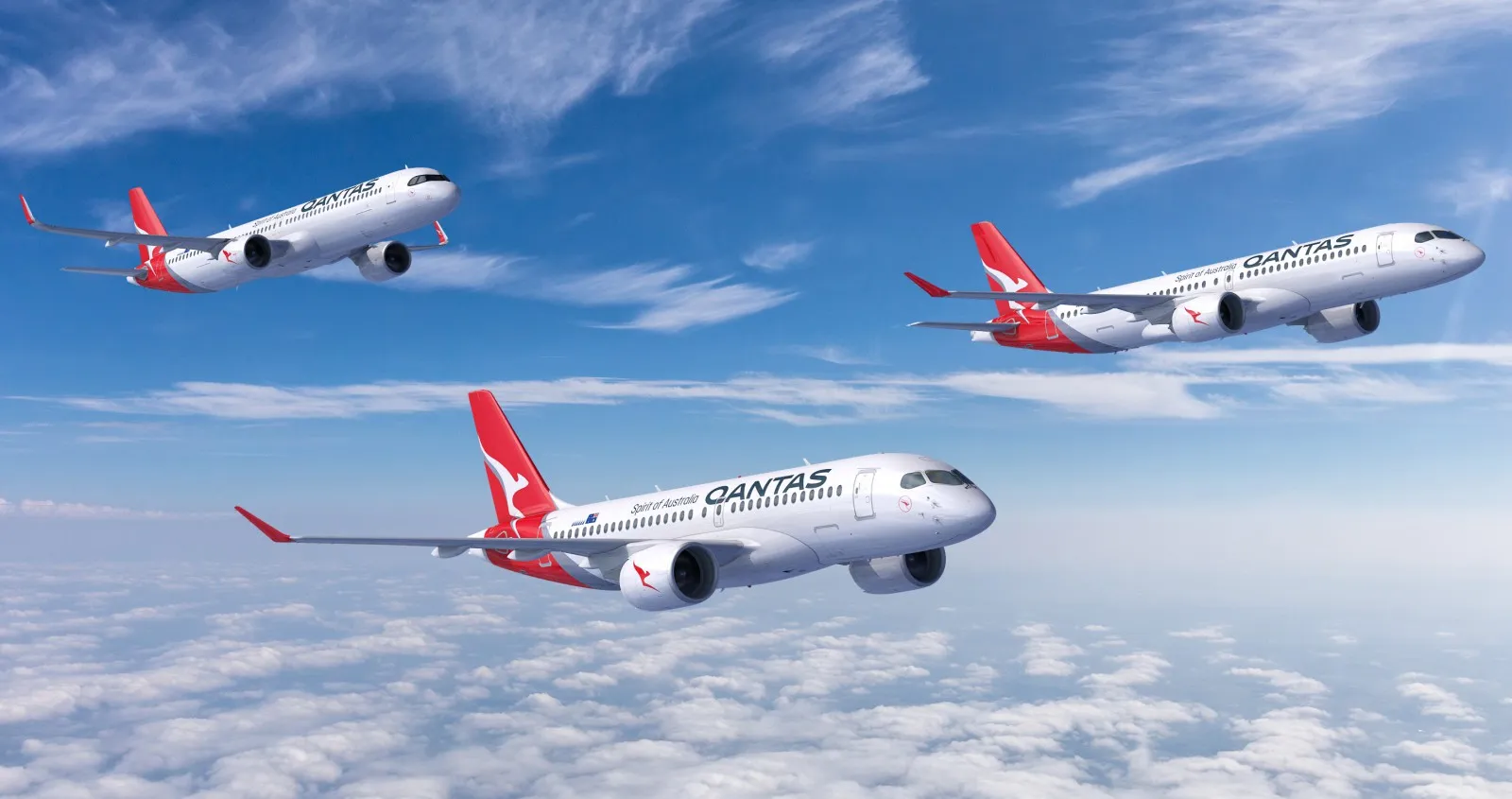
QANTAS ON TIME RELIABILITY ON THE UP
Apr 23, 2024

Qantas has seen a notable improvement in its on-time reliability, reflecting the airline's commitment to enhancing operational efficiency. Recent performance metrics indicate that more flights are arriving and departing as scheduled, which is a positive development for travelers. This uptick in punctuality is attributed to better management of resources and improved scheduling practices. As a result, passengers are enjoying a more reliable travel experience, fostering increased customer satisfaction and loyalty. The airline's focus on maintaining high standards in its operations positions it favorably in a competitive market, reinforcing its reputation as a trusted carrier.
Qantas, Australia’s flagship airline, has recently made headlines with its remarkable improvements in on-time reliability. As travelers increasingly prioritize punctuality, Qantas has taken significant steps to enhance its operational efficiency and ensure that passengers reach their destinations without unnecessary delays. This article delves into the factors contributing to Qantas's improved on-time performance, the impact on customer satisfaction, and what it means for the future of the airline.
Understanding On-Time Reliability
On-time reliability, a critical metric in the aviation industry, reflects an airline's ability to operate flights as scheduled. An on-time performance is typically defined as a flight arriving within 15 minutes of its scheduled arrival time. For Qantas, achieving high on-time reliability is essential for maintaining its reputation as a leading airline and ensuring customer loyalty.
Recent Improvements in Qantas's On-Time Performance
Recent data indicates that Qantas has made significant strides in improving its on-time performance. According to reports from the Australian Competition and Consumer Commission (ACCC), Qantas's on-time reliability rose to approximately 85% in recent months, a notable increase compared to previous years. This improvement can be attributed to several key factors:
- Fleet Modernization: Qantas has invested heavily in upgrading its fleet with newer aircraft that are more efficient and reliable. Modern planes require less maintenance and can operate more reliably under various weather conditions.
- Operational Efficiency: The airline has optimized its scheduling and operational procedures, reducing turnaround times and ensuring that flights depart and arrive as scheduled.
- Weather Management: Qantas has enhanced its capacity to manage weather-related disruptions, employing advanced technology to predict and respond to potential delays more effectively.
The Impact of On-Time Reliability on Customer Satisfaction
As on-time reliability improves, so does customer satisfaction. Passengers are more likely to choose Qantas for their travel needs if they can rely on the airline to deliver them to their destinations on time. According to a survey conducted by the airline, over 90% of travelers indicated that punctuality is one of the top factors influencing their choice of airline.
Moreover, Qantas's commitment to on-time performance has led to increased customer loyalty. Frequent flyers appreciate the reliability and are more inclined to choose Qantas for future trips, knowing that they can depend on the airline for timely departures and arrivals.
Chart: Qantas On-Time Performance Over the Past Year
Below is a chart illustrating Qantas's on-time performance metrics over the last year, showcasing the significant improvements achieved:
| Month | On-Time Performance (%) |
|---|---|
| January | 78% |
| February | 80% |
| March | 82% |
| April | 85% |
| May | 83% |
| June | 87% |
| July | 88% |
| August | 90% |
| September | 89% |
| October | 91% |
Future Prospects for Qantas
Looking forward, Qantas aims to sustain this momentum in on-time reliability. The airline is implementing innovative technologies, such as predictive analytics and enhanced communication systems, to further streamline operations and minimize delays. Additionally, Qantas is committed to training its staff to handle disruptions more effectively, ensuring that passengers receive timely updates and assistance when needed.
Moreover, with the ongoing recovery of the travel industry post-pandemic, Qantas is in a position to capitalize on increased passenger demand. By maintaining high standards of on-time reliability, the airline can attract more customers, boost its market share, and enhance overall profitability.
Conclusion
In summary, Qantas's commitment to improving its on-time reliability is not only a strategic move but also a vital component of its overall customer satisfaction strategy. With significant advancements in operational efficiency and a focus on customer needs, Qantas is well-positioned to continue its upward trajectory in on-time performance. As travelers increasingly prioritize punctuality, Qantas's efforts will likely pay off, solidifying its position as a leader in the aviation industry.
Related Articles

Explore Thailand: The Best Islands to Visit for Paradise, Adventure, and Relaxation

The Ultimate Guide to the Best Islands in Thailand for Your Next Getaway

Do babies need passports? How to get a passport for a newborn

How to get a U.S. passport fast: here’s how to expedite the process

What is Mobile Passport Control: 5 reasons why you should use it

SENTRI vs. Global Entry: A detailed guide

Do you need a passport to go to the Bahamas? Let’s find out

Do you need a passport to go to Mexico? A detailed guide

Do you need a passport to go to Canada? We got the answer

Do You Need a Passport for a Cruise: An Essential Travel Guide

Booster Seat Requirements: All the Rules to Follow in Your Rental Car

What Are the World’s Most Powerful Passports, and How Does Yours Rank?

How to Take a Passport Photo at Home: A Helpful Guide

You've got to have heart! Southwest's new livery

Your opinion: Should water be free on low cost carriers?

Young women bolder than guys as solo travellers
